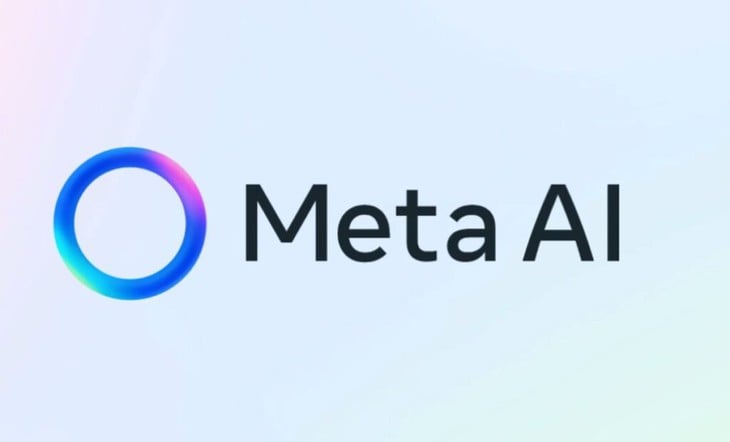
Meta AI application of Meta Company - Photo: DIGITAL WATCH OBSERVATORY
Launched in April, Meta AI is a standalone app that serves as Meta Company’s virtual assistant and has a “Discover” section for users to explore how the community creates artificial intelligence (AI) content.
The product was hastily developed from the AI application that came with the smart glasses before. However, after only a few months, a series of negative feedback appeared, claiming that the experience was poor, the content on the feed was not current, and the AI often "fabricated" information.
Disjointed experience, weak personalization
Bloomberg News' test showed that Meta AI can recognize some basic user preferences but is still prone to giving misleading information, especially when asked questions that are topical or related to personal data.
One big problem is the lack of seamlessness. When users switch between Facebook, Instagram, Messenger, or WhatsApp, their conversations with Meta AI get out of sync, causing a disjointed experience.
Each platform has a version of Meta AI that works in a different way: WhatsApp focuses on task suggestions and calendar management, Messenger excels at photo creation, and Facebook leans toward comment summarization.
This fragmentation contrasts with OpenAI's ChatGPT or Perplexity, which allows chat history to be synchronized across devices and platforms, creating a sense of unity.
Personalization is also underrated. While Meta AI knows location and some interests, event and activity suggestions are generic and lack depth.
The app doesn't retrieve personal data from Facebook or Instagram to tailor answers, a limitation that users hoped for but disappointed.
Notably, AI sometimes “invents” details about users’ personal lives, reducing the product’s credibility and usefulness.
Negative feedback and competitive challenges
Meta AI has been met with mixed reviews since its launch. A Reddit post in April, “Who hates Meta AI?”, which garnered more than 72,000 upvotes, reflected the community’s frustration with AI being forced into popular apps. Many said the product “wasn’t asked for” and “just slows down apps.”
Despite reaching more than 1 billion users through social networks Facebook, Instagram, Messenger and WhatsApp, Meta AI has yet to create its own appeal.
The app’s “Discover” section mostly shows AI photos created by strangers, with content that lacks personalization and sometimes includes sensitive elements. Meta claims to only share content with user consent and will remove AI assistants that violate community standards.
Strategically, Meta CEO Mark Zuckerberg considers Meta AI to be the “main personal AI assistant” in the US, capable of competing with ChatGPT, Gemini or Claude.
The long-term goal is to make AI a central tool for personalization, user retention, and advertising support.
To achieve this ambition, Meta has open-sourced its Llama language model, accelerated research, and recruited talent from Apple and OpenAI. However, the gap between core technology and consumer products remains large.
Analysts say Meta AI has potential in image creation, daily task processing and research support, but if the experience is not improved, the product will hardly become Meta's "trump card" in the AI race - where competitors have advanced quickly with stable, feature-rich services and are more popular with the community.
Source: https://tuoitre.vn/meta-ai-loay-hoay-sau-nhieu-thang-ra-mat-xa-ky-vong-cua-ceo-zuckerberg-20250815232256476.htm

























![[Photo] National Assembly Chairman Tran Thanh Man attends the program "Returning to the source - Towards the future"](https://vphoto.vietnam.vn/thumb/1200x675/vietnam/resource/IMAGE/2025/8/16/d081d9c162ee4ed9919e723aa322a53a)

![[Photo] General Secretary attends the inauguration ceremony of the Ministry of Public Security Headquarters](https://vphoto.vietnam.vn/thumb/1200x675/vietnam/resource/IMAGE/2025/8/16/3ceec3a24ef945c18ae2b523563b749d)
![[Photo] “Moving forward with Vietnam” on the most romantic road in Vietnam](https://vphoto.vietnam.vn/thumb/1200x675/vietnam/resource/IMAGE/2025/8/16/0ee500bc59fd4468863261ee26f47fe7)


































































Comment (0)